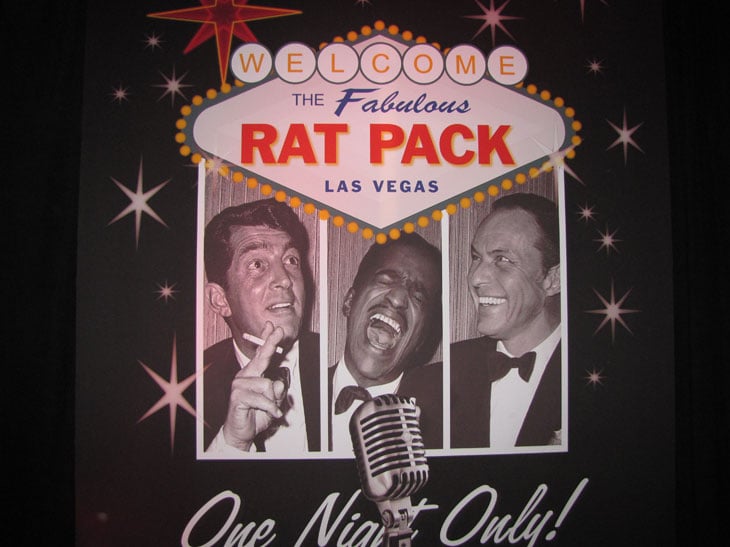Problem Gambling Behavior Reduced in Rat Packs
Posted on: November 3, 2013, 05:30h.
Last updated on: January 12, 2023, 11:16h.

Admittedly the idea of a rat casino conjures up images of Mickey Mouse et al placed around a poker felt or craps table, chain smoking comically large cigars while Minnie serves the boisterous crowd bourbon on the rocks, but a group of researchers in British Columbia have used one to produce some interesting results.
Science Daily reports that brain researchers at the University of British Colombia have been successful in reducing the behaviors commonly associated with compulsive gambling in people, through studying rats.
Rats on Sugar Slot Machines
The 16-month research project from the university involved the first successful modelling of slot machine-style gambling featuring rats in North America, and has successfully shown that behaviors associated with problem gambling can be treated using drugs which block dopamine D4 receptors, according to these scientists.
The team’s findings suggest that blocking the D4 dopamine receptor may help to reduce the pathological gambling behaviors found increasingly in humans, but they have explained that further studies and research needs to be carried out before the drugs used can be considered viable as a pharmaceutical treatment for problem gambling.
“More work is needed, but these findings offer new hope for treatment of gambling addictions, which is a growing public health concern,” said lead author of the study and Ph.D. student in the university’s department of psychology, Paul Cocker. “This study sheds important new light on the brain processes involved with gambling and gambling addiction.”
The research team built on previous research findings by focusing on the dopamine D4 receptor, which has never proven useful in treatment, despite being linked to a number of behavioral disorders.
As strange as it may sound, the study involved rats gambling for sugar pellets using a device similar to a slot machine, which featured three flashing lights and two levers which could be activated using the paws of the rats.
In order to signal a win, all three lights would illuminate on the apparatus, while seven different combinations with either none, one or two lights illuminated signaled a losing turn. A “cash-out” lever rewarded the rats with 10 sugar pellets on winning turns, but gave a 10-second “time out” penalty for losing turns, and a “roll again” lever enabled the rats to begin a new trial without being penalized, but they won no sugar pellets either.
“Near Misses” Seem Like Wins
The researchers noted that when two lights were illuminated, indicating a near miss, rats would frequently choose the cash-out lever, indicating that they looked at the loss as similar to a win, much like the behavior associated in humans with gambling problems.
The brain researchers found that the rats showed several behavioral signs associated with problem gamblers similar to those in humans, including a tendency to treat “near misses” akin to successful wins.
It is thought that since near misses are seen more often in slot machine-style games than other gambling, they are a comparatively more addictive form of gambling, since the optimistic view towards near misses plays a big role in the behavior of problem gamblers.
What they found through carrying out their research was that those rats treated with a medication which blocked the dopamine D4 receptors showed signs of reduced behaviors associated with problem gambling patterns.
“Pathological gambling is increasingly seen as a behavioral addiction similar to drug or alcohol addiction, but we know comparatively little about how to treat problem gambling,” explained Cocker. “Our study is the first to show that by blocking these receptors we might be able to reduce the rewarding aspects of near-misses that appear to be important in gambling.”
The findings of the study have been published in the Biological Psychiatry Journal, and if positive results continue, the findings could help the three to five percent of North Americans affected by compulsive gambling, according to Scienceblog.com.
Related News Articles
Wynn Land Deal Shows Deep Connections Between Wynn, Trump, and Ruffin
Most Popular
Genovese Capo Sentenced for Illegal Gambling on Long Island
NBA Referees Expose Sports Betting Abuse Following Steve Kerr Meltdown
UPDATE: Former Resorts World & MGM Grand Prez Loses Gaming License
Jackpot News Roundup: Two Major Holiday Wins at California’s Sky River Casino
Most Commented
-
UPDATE: Whiskey Pete’s Casino Near Las Vegas Closes
— December 20, 2024 — 33 Comments -
Caesars Virginia in Danville Now Accepting Hotel Room Reservations
— November 27, 2024 — 9 Comments -
UPDATE: Former Resorts World & MGM Grand Prez Loses Gaming License
— December 19, 2024 — 8 Comments -
FTC: Casino Resort Fees Must Be Included in Upfront Hotel Rates
— December 17, 2024 — 7 Comments















